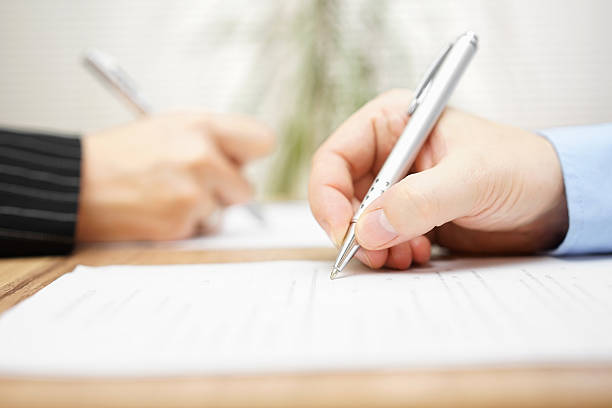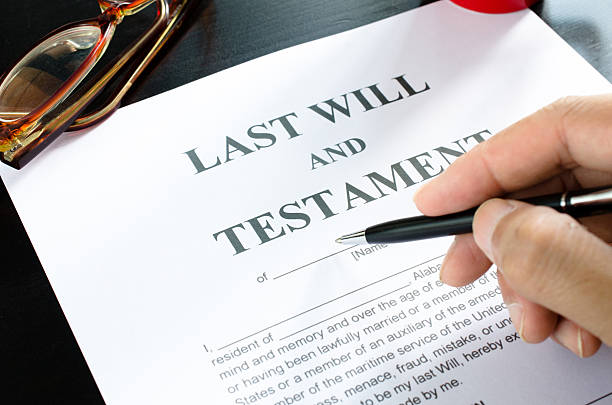When writing a Will, you must look into the importance of witnessing a Will. There are some conditions for a Will to be legally valid. Of these, witnessing a Will is an important factor. In this article we will explore the concept of witnessing a Will especially in the state of New South Wales (NSW).
As you may be aware, a last Will and testament is a crucial legal document. This is because it ensures that parties such as family members and friends respect an individual’s final wishes, and distribute their assets according to their instructions after their demise.
In NSW, there are specific requirements for witnessing a Will to ensure its validity and to prevent any disputes or challenges in the future. Section 6 of the Succession Act (2006) outlines these requirements. The Will-maker signs the Will, and then there are also the following requirements to keep in mind:
- It must be in writing;
- The Will-maker must sign the Will;
- Two witnesses must be present when the testator signs the Will, and they must also sign the document.
In addition to this, the Will-maker must also have the mental capacity to write a Will. This is their testamentary capacity. They must understand the extent of their estate when allotting assets to family members.
Witnessing a Will: Requirements
As briefly mentioned above, in NSW, the Succession Act 2006 governs the rules and regulations regarding Wills. According to the Act, a Will must be in writing and signed by the testator, the person making the Will. The testator must sign the Will in the presence of two witnesses.
When witnessing a Will in NSW, there are certain criteria that the witnesses must meet. Firstly, they must be competent witnesses, which means they must be at least 18 years old and of sound mind. They must also understand the significance of the act and be able to testify if required.
The witnesses must not be beneficiaries or potential beneficiaries of the Will. If a witness is a beneficiary, their entitlement to receive a gift under the Will may be void unless there are at least two other competent witnesses who are not beneficiaries. Ideally, the witnesses should have a clear view of the testator’s act of signing the Will.
Additional Requirements
Importantly, the witnesses must sign the Will after the testator, acknowledging that they were present when the testator signed the Will. Witnesses should make their signatures in the presence of the testator, but it is not necessary for them to sign in each other’s presence.
To further establish the authenticity and validity of the Will, the witnesses should provide their full names, addresses, and occupations alongside their signatures. This information helps identify the witnesses if their testimony is necessary in the future.
It is advisable for the witnesses to be independent individuals who have no vested interest in the Will or the testator’s estate. This ensures the impartiality and credibility of the witnesses in case their testimony is necessary to verify the validity of the Will.

Importance of Witnessing a Will
When writing a Will, you must get that witnessed because, as we have seen, it may be not be legally valid otherwise. In NSW, if a Will is not witnessed property, it may be deemed invalid or partially invalid. Proper witnessing is crucial to ensure the Will’s validity and to prevent potential disputes or challenges after the testator’s demise.
If witnesses are not present to witness a Will properly, the law may consider it invalid in its entirety. This means that the entire Will would be disregarded, and the testator’s estate would be distributed according to the rules of intestacy. Intestacy laws dictate how an estate is divided among the deceased person’s next of kin when there is no valid Will in place.
In some cases, if a portion of the Will is not properly witnessed, only that specific part may be deemed invalid. The remaining parts of the Will that are properly witnessed may be still be considered valid and enforceable.
It’s important to note that the consequences of improperly witnessed Wills can vary depending on the specific circumstances and the extent of non-compliance with the witnessing requirements. In some cases, a court may be able to rectify certain issues or overlook minor irregularities if there is evidence to support the testator’s intentions.
However, it is generally advisable to ensure that someone witnesses a Will properly to avoid any potential complications or disputes. To summarise, proper witnessing involves having two competent witnesses who are present at the same time as the testator, witnessing the testator’s signature, and signing the Will themselves.

JB Solicitors’ Wills and Estate Planning Team
If you have concerns about the validity of your Will, we recommend you to consult with our legal professionals. We can provide specific guidance based on the details of your situation and advise you on the best course of action.
Once parties have witnessed the original Will properly, the testator should store the Will in a safe and secure location. Informing the executor or a trusted person about the location of the Will is crucial to ensure that it can be easily located and accessed when needed.
Witnessing a Will in NSW is a serious responsibility, as it safeguards the testator’s final wishes and protects against potential challenges. By following the prescribed guidelines and legal requirements, witnesses contribute to the integrity and validity of the Will, providing peace of mind to the testator and their beneficiaries.
We have a team of competent solicitors who have the ability to prepare both simple and complex Wills. Contact our team of solicitors for more information.
